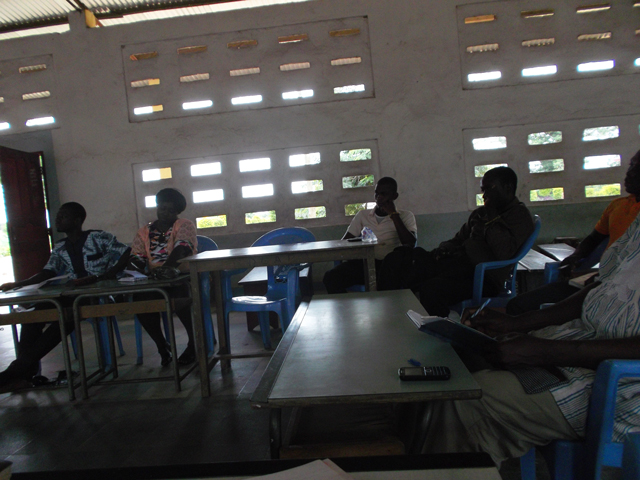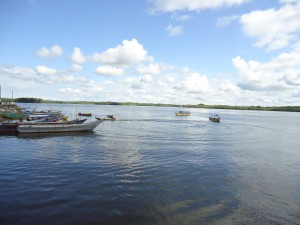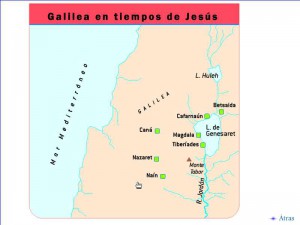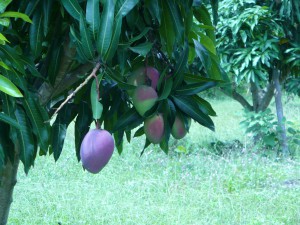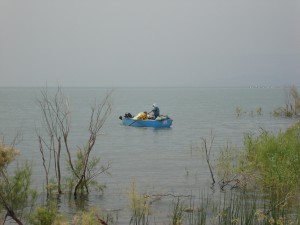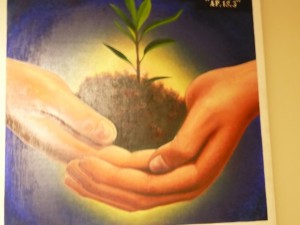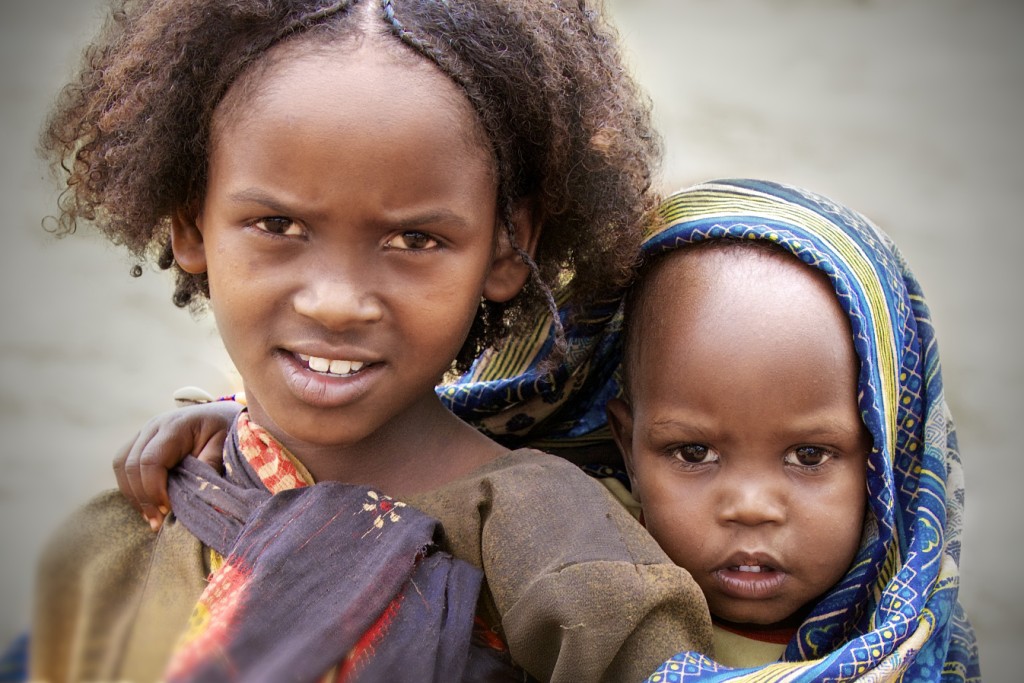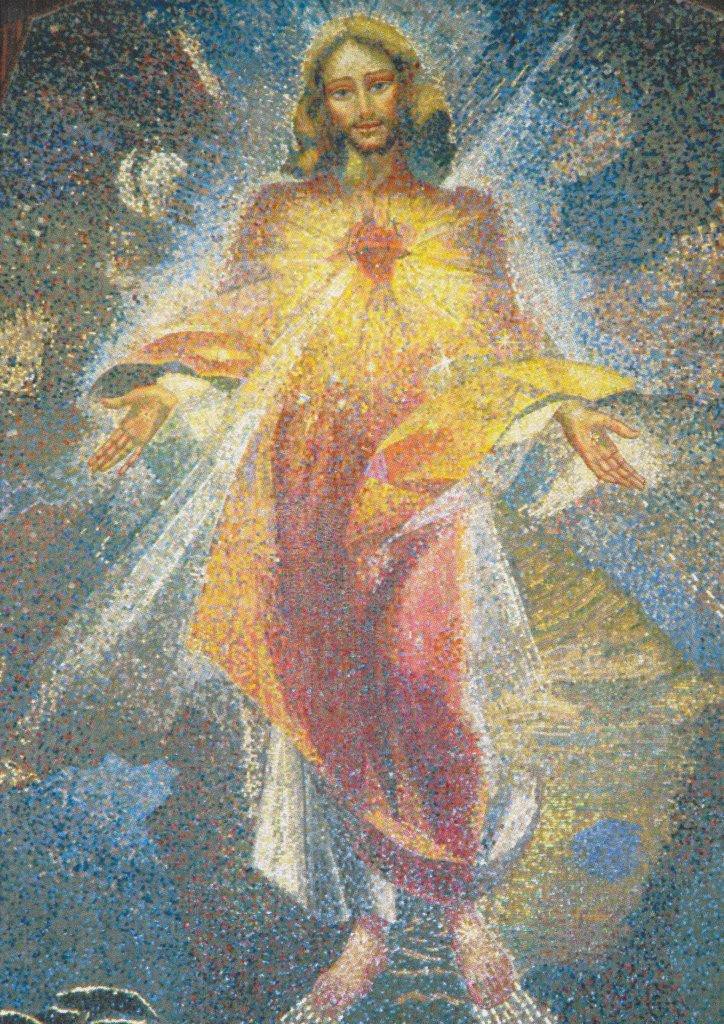
“We ask for the grace to become joyful and happy consecrated people because we carry in our heart the treasure of the love that flows from the pierced Heart of the Lord, which St. Daniel Comboni discovered as the foundation on which to build his mission and to which he committed himself without setting any limit. May the trust in the Heart of Jesus become also for us a source of an eternal love that will help us to live our consecration as the most beautiful gift that we have been given. Happy Feast day of the Sacred Heart.” Fr. Enrique Sánchez G., mccj, Superior General.
Consecrated in the Heart of Jesus
The words consecration and consecrated, with all their synonyms, can be enhanced and integrated in our lives, especially during this year earmarked for the religious and consecrated life, to the extent that we allow ourselves a moment for reflection and, perhaps even more, for gratitude for this gift.
At the same time, these words are likely to be emptied of their meaning and the richness they evoke, if we do not compare them with the experiences of our life; if we do not give, through our life, an authentic meaning to what we assert in words.
We are consecrated. Very little is needed to make this proclamation which, however, is not so obvious when we ask our life-witness to express the content of what has been the choice of our life.
Although it must be said that there are extraordinary examples, very close to us, of people who have treasured their consecration and whose life has been transformed into a light that can penetrate the darkest shadows, now we need to stop and ask how much our consecration to God defines and characterizes our identity and our acting.
To reflect on our consecration can become an extraordinary occasion to better understand what we mean when we identify ourselves as persons consecrated to God for the mission.
Our missionary consecration
To help us in our reflection, especially on the Feast of the Sacred Heart, I would like to share with you some brief thoughts that might be provocations for asking us to what extent and how much we are living our religious consecration and mission.
Pope Francis invited us to do a memory exercise, to recognize in the past the gift of our vocation, of our charism, letting flow from within our heart the gratitude and thankfulness for this gift. He recommended us to contemplate the present of our consecration to live it with passion, without making calculations, with the generosity and enthusiasm of the first moment, when in the silence and complicity of God we heard our name pronounced and dreamed of a mission without frontiers.
The Pope asked us to look to the future with hope, which means confidence in God, in his proximity, in the certainty that He continues to cherish in his heart a plan for humanity that no one can frustrate, because it will always be a project of love and love does not halt in the face of obstacles.
To live our missionary consecration in this way leads us to rediscover, to experience again the joy of the first moment of our call, and to say in simplicity: Lord, how great you have been in setting your eyes on me. You could not have bestowed on me a more extraordinary gift.
Being a missionary was the best choice that you have done for me; thank you, because you have remained faithful and because what has happened to me so many years ago continues to maintain its freshness.
Thanks for this missionary present that is a challenge to us. Your call is sometimes in danger of being overshadowed by so many obstacles that we find in our path. We lack your passion, your enthusiasm, your courage in not letting ourselves be overcome by the indifference of our time, the consumerism that surrounds us, the superficial hedonism that assails us with its traps that increase our selfishness and superficiality.
We need missionary passion, first of all to believe in you with all our heart, to find you in the brother who suffers, in the sister who is abused, in the young man condemned to live without the possibility to dream of an appropriate future, to come out of our shelter and comfort.
Lord, it is good to recognize with humility and simplicity that we lack the passion which is not afraid of sacrifice, renunciation, abandonment, the passion that allows us to leave everything to make of you and your mission the most important thing of our life.
You gave us a vocation that makes us privileged people, because for us you have chosen, as a place to meet you, the poorest, those farthest away, those who do not count in the eyes of our contemporaries.
“The hope of which we speak – says the Pope – is not based on numbers or enterprises, but on the One in whom we have placed our trust” (2 Tim 1:12).
We want to live, and we cannot but do so, in the hope of when we have been witnesses of your fidelity, your trust, your kindness toward us. We are not scared of tomorrow because we know that you have preceded us and prepared for us the morrow that will be completely different from what we could have established with our own efforts and our resources.
We are not afraid to decrease, to die, because we are convinced that, wherever you are, life cannot but win and that it will always be you the one to write the beautiful history of the mission, which will also become ours.
A consecration lived through small and large details
When we speak of consecration, I intend to say that we are referring to an experience, to a life that makes us live through the small and large details of our existence and of our daily work, as we fulfil the dream that we carry in our heart as the ideal that drives us to go farther and farther.
I intend to say that being consecrated is nothing but accepting with joy that our life is in the hands of the One who gave us our existence. It is to accept that we are the Lord’s possession, that we are or we are becoming God’s gift to humanity.
How many times we have heard that the consecrated persons are people who have freely agreed to give up everything to allow God fulfil his dream of love for humanity.
It’s nice to think so, because it helps us understand that the consecration is not a work that comes from our own will or ability, but an experience of great freedom, generosity and above all of deep docility.
What does it mean to be consecrated to God?
To be consecrated to God is to educate our heart to be always open and willing to what He wants to do of us. In this sense, consecration is synonymous with abandonment, obedience and courage, because with the Lord we know where the adventure begins, but we do not know how far He will take us.
To speak of consecration means entering a world in which our parameters are no longer applicable, because we enter the world of the mystery of God, which breaks all our logic and our calculations and turns everything upside down, as He becomes the protagonist of our history and the master of our existence.
And here we can think of many sayings in the Gospel: “You did not choose me, no, I chose you” (Jn 15:16); “This is my beloved Son, in whom I am well pleased” (Mt 3:17).
What great strength resounds in Paul’s message when he remembers how he was chosen and how, in his ministry as an apostle, he has realised that “We know that by turning everything to their good God co-operates with all those who love him, with all those that he has called according to his purpose” (Rom 8:28).
So, the question that arises is very simple: who is, after all, the one who is consecrated?
How many times have we to recognize that in our lives we have advanced because the Lord has not pulled back? How many times have we to realise that were not our qualities, our merits and our virtues that made us worthy of the gift of the choice that the Lord made us?
We have a great responsibility in preserving and developing the grace received from the day we said yes to the Lord. Will we always remember that God calls and does not change his opinion over time? To which loyalty does He challenge us?
St. Daniel Comboni’s witness
“Since I have an extreme need of the help of the Sacred Heart of Jesus, the Sovereign of Central Africa, the very joy, hope, fortune and the all of her poor Missionaries, I write to you, my friend, the apostle and faithful servant of the divine Heart which is so full of love for the most unfortunate and abandoned souls on earth.
How glad I am to spend half an hour with you, to commend and entrust to the Sacred Heart the most precious interests of my trying and difficult Mission, to which I have vowed my whole soul, my body, my blood and my life!” (Writings 5255-56).
The consecration of the Comboni missionary, to be a real source of happiness, will always have to try to respond to this clear conviction of Comboni, a consecration that will be born of the experience of love that flows from the Heart of Jesus. The Heart of God who has loved so much humanity and who had no hesitation in handing over for love his Son, his only Son.
It is from this love that our consecration originates and finds support. It is and will always be from this open Heart that we can receive the light and strength to live only for God and for his work. It is from the Heart of Jesus that we will have to learn how to become God’s people who find their joy in serving the mission with an undivided heart.
It will always be the Heart of Jesus to help us look to the future without falling into discouragement, sadness and disappointment, because from the Heart of God new things are always born for the good of all those who open themselves to love.
Like Comboni, we must learn not to be scared by the difficulties of the mission that we are called to live. It will always be a difficult and laborious work, but we must not forget that it is the mission of God, not ours. It is the mission of the Lord in which we are called to become mere collaborators and facilitators of his love.
As our holy founder, we too are invited and called to live fully the gift of the missionary vocation, willing to devote all our heart and soul, becoming men of deep faith, accepting with joy to witness through our poverty, our chastity and our obedience, and always trying to create environments of intense fraternity.
Even for us, the great challenge of the consecration will be the willingness to sacrifice everything for others, for those we meet in the mission. This also means acceptance of martyrdom, which will ask us to impregnate the heart of our brothers and sisters with our lives offered up in our daily existence, in humble and hidden service, in joyful acceptance of the surrender of ourselves to allow God to manifest his love.
Only if educated in this school of love, which is the Heart of Jesus, we will be able to experience in total freedom the choice for the poorest, and to give a face to the love of God, through the construction of a more just, more caring, more respectful world, capable of generating the happiness that we all carry in our heart as the only true yearning of our lives.
We ask for the grace to become joyful and happy consecrated people because we carry in our heart the treasure of the love that flows from the pierced Heart of the Lord, which St. Daniel Comboni discovered as the foundation on which to build his mission and to which he committed himself without setting any limit.
May the trust in the Heart of Jesus become also for us a source of an eternal love that will help us to live our consecration as the most beautiful gift that we have been given.
Happy Feast day of the Sacred Heart.
Fr. Enrique Sánchez G., mccj
Superior General




